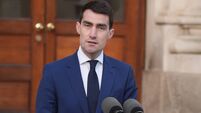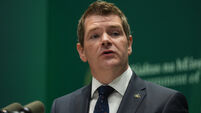PRSI would have to rise to keep the pension age at 66

The Pensions Commission recommended that the age for qualifying for the State pension should be moved upwards but Micheál Martin has raised doubts about that proposal. Stock picture
PRSI contributions will have to rise in the coming years in order to keep the pension age at 66, the Taoiseach has warned.
Micheál Martin said he does not want to see the pension age rise above 66 after the issue was discussed during a special budget-focused meeting of the Fianna Fáil party on Friday.














